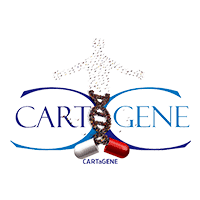OUR PARTNERS
Our Partners
HealthyDesign.City is a partnership between the Dalla Lana School of Public Health – University of Toronto and the Canadian Urban Environmental Health Research Consortium (CANUE), and is funded by the Public Health Agency of Canada.
Our Collaborators
Diverse organizations across Canada collaborate with HealthyDesign.City to help increase our outreach to urban planners, public health professionals, community advocacy groups and the general public.

The National Collaborating Centre on Healthy Public Policy is one of six National Collaborating Centres created to foster linkages within the public health community. It aims to increase the expertise of public health actors across Canada in healthy public policy through the development, sharing and use of knowledge.

The Urban Public Health Network (UPHN) is a network of Medical Officers of Health in Canada's 24 largest cities who came together in 2004 to address public health issues that are common to urban populations. The network encompasses approximately 50% of the Canadian population.

The Sandbox Project is a national charity working to improve the health and wellbeing of Canadian children and youth by fostering education, sharing knowledge and resources and developing policy through private-public collaborations.

The National Collaborating Centre for Environmental Health is one of six National Collaborating Centres created to foster linkages within the public health community. It aims to be an indispensable resource for environmental health practitioners and policy-makers across Canada. It focuses on health risks associated with the physical environment and identifies evidence-based interventions to mitigate those risks.

CREBS (Centre de référence sur l’environnement bâti et la santé) at INSPQ (Institut national de la santé publique du Québec) is a provincial organization whose members comprise public health professionals in Quebec.

CHILD is the largest multidisciplinary, longitudinal, population-based birth cohort study in Canada and is designed to be one of the most informative studies of its kind in the world. By following the children prospectively as they grow, as opposed to retrospectively, CHILD researchers are able to more accurately learn about how different early-life exposures relate to health and disease outcomes.

As Alberta’s largest health research study, ATP aims to reveal what causes and what may prevent cancer and chronic diseases. Following the health of 55,000 men and women for the next 50 years, this long-term cohort study provides exceptional depth and breadth of detailed information to researchers around the world. Thanks to more than a billion pieces of data and thousands of biological samples, scientists will be able to explore how lifestyle, genetics and environment influence the health of generations to come.

The Atlantic Partnership for Tomorrow’s Health Study, or Atlantic PATH as we usually call ourselves, is part of the Canadian Partnership for Tomorrow’s Health (CanPath), the largest study of its kind ever undertaken in Canada.
This national study is investigating how genetics, the environment, lifestyle, and behavior contribute to the development of chronic diseases.

CARTaGENE is a public research platform of the CHU Sainte-Justine created to accelerate health research. CARTaGENE consists of both biological samples and health data from 43,000 Québec residents aged between 40 to 69 years. By being a catalyst for health innovation, CARTaGENE will enable to improve prevention, diagnosis and treatment of chronic diseases such as heart disease, diabetes and cancer.


